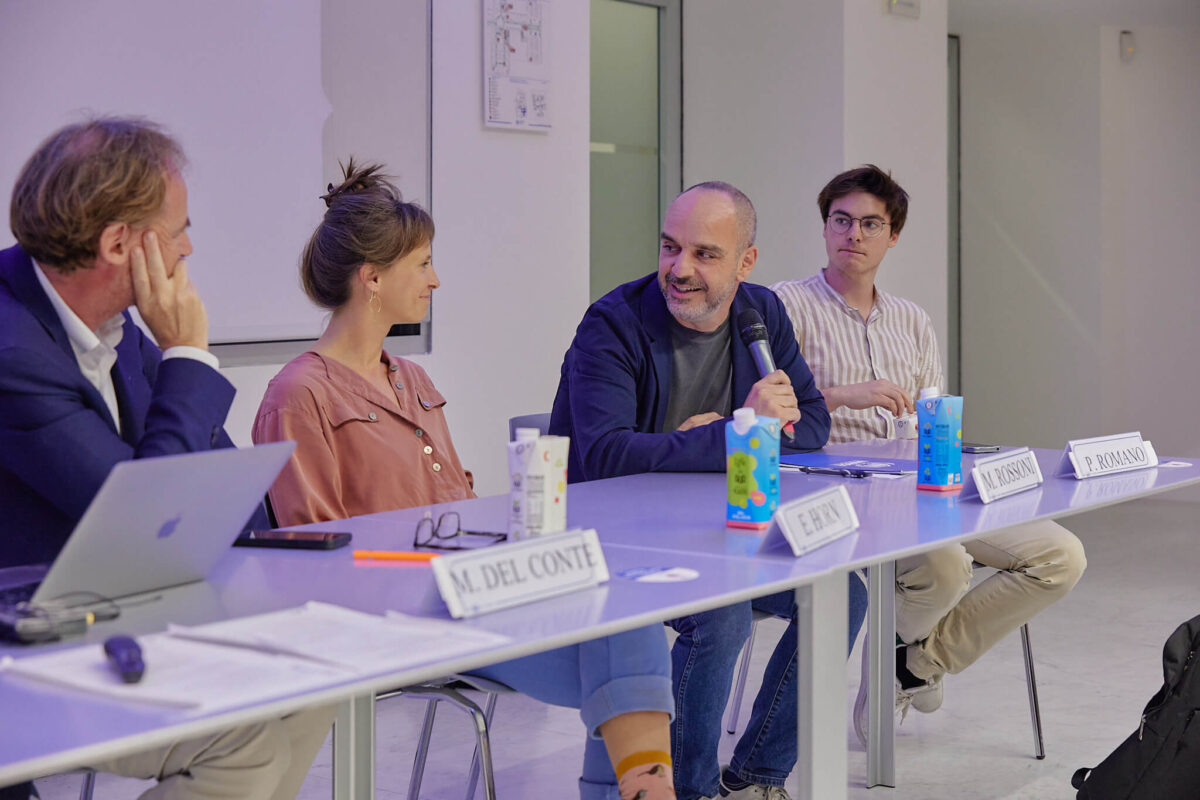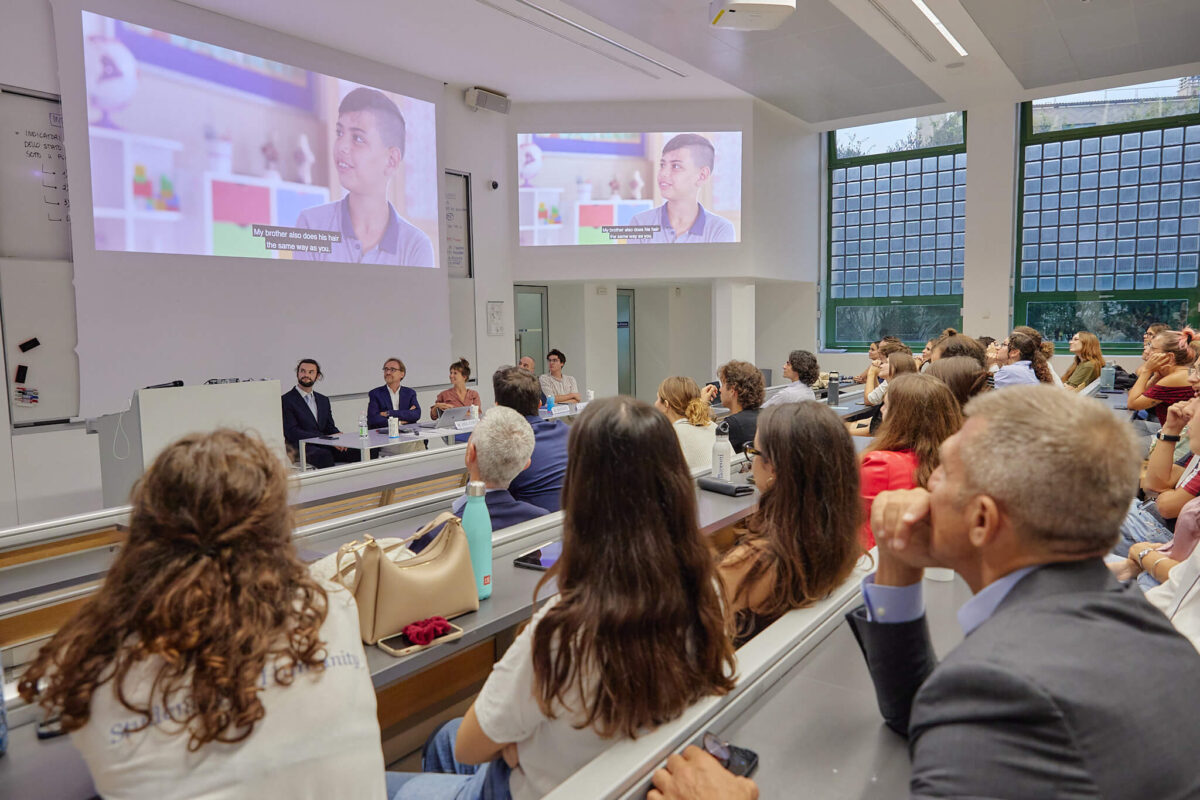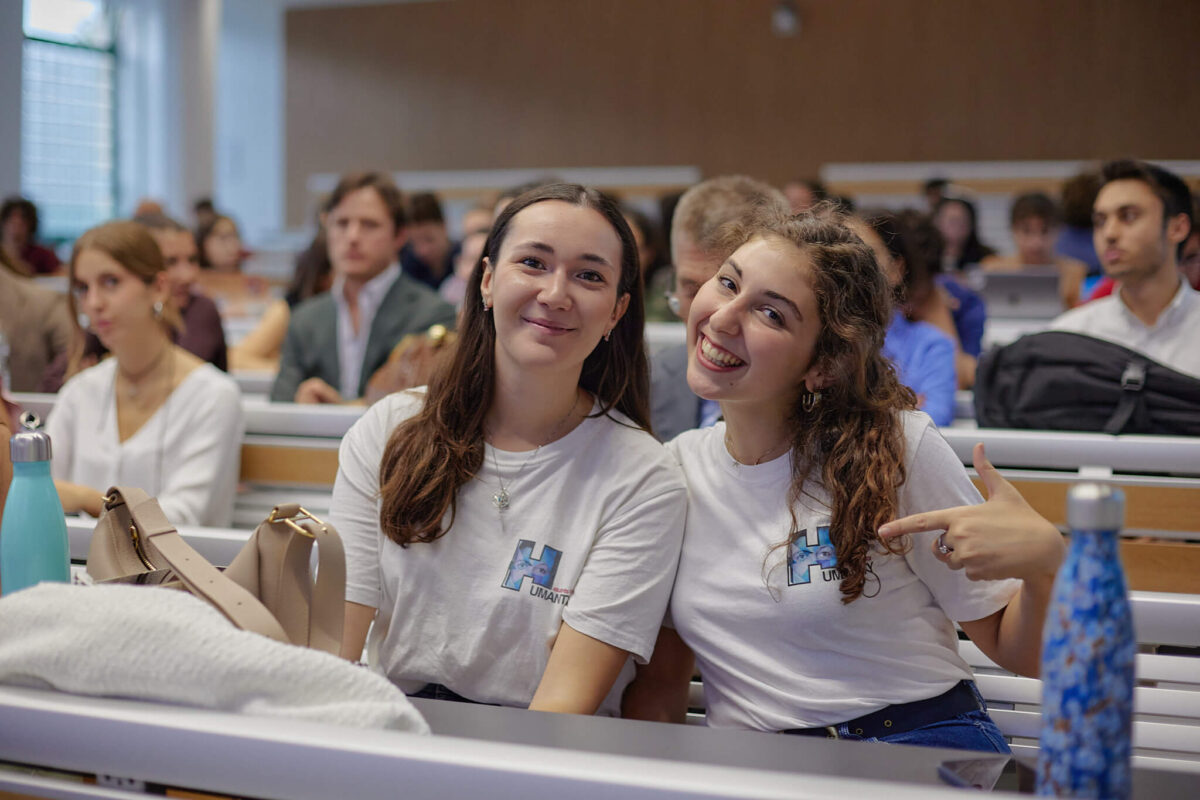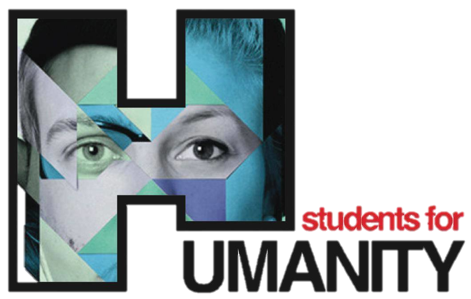In an increasingly interconnected world, where borders blur and global challenges require collective solutions, the treatment and perception of refugees have become critical issues. On the 9th of October, at Bocconi University a conference titled “Changing the Perception of Refugees in the West” took place, aiming to address these pressing concerns head-on.
The event, organized by Students for Humanity and Res Ethica, has seen the participation of distinguished guest speakers including Professor Maurizio del Conte, Mr. Marcello Rossoni (the head of the Milan UNHCR office), Mr. Paolo Romano (a group leader from the Democratic Party), and Ms. Elena Horn (a German filmmaker renowned for her work centered on themes such as education, migration, and ethnic conflict).
The conference’s discourse commenced with the screening of a short film directed by Ms. Elena Horn, titled “Pizza, Democracy, and The Little Prince,” produced in 2019. The film documented a poignant encounter between international students and Syrian refugee children in Istanbul. The attendees’ emotional responses were multifaceted: on one hand, there was a profound sense of sorrow elicited by the genuine human experiences, aspirations, and unassuming spontaneity of these children; on the other hand, it was impossible not to be captivated by the optimistic worldview and innate innocence of these children, qualities that effortlessly transcended boundaries and brought smiles to the faces of the audience.

This initial screening set the stage for a profound examination of the perniciousness of narratives that frequently juxtapose refugees with invaders—a narrative that cultivates prejudice instead of fostering integration. Such a perspective appears incongruent with Italy’s historical legacy, a nation that has been shaped by migratory flows in both directions since the time of the Roman Empire.
Consequently, the conference undertook a reflective exploration of the factors that impede integration and hinder the realization of the often-idealized “melting pot.” Notable among these impediments were the protracted bureaucratic processes and the dearth of adequately staffed offices responsible for expeditiously issuing essential documents. Further challenges included the absence of initiatives that actively promote the integration of residents within reception centers and the scarcity of financial resources allocated to ensure that everyone has the means to embark on a future in Italy.
Indeed, the absence of tangible support and a sense of abandonment were identified as catalysts that propel individuals toward criminal activities and incentivize labor exploitation—a perception that constrains their perceived alternatives.

Finally, the conference convened a profound dialogue on the strategic choices necessary to harness the potential inherent in the migration flows directed toward Italy. Insights and inspiration were gleaned from experiences in other nations.
Central to this endeavor is the fundamental objective of fostering multiculturalism. This entails the promotion of integration while preserving the cherished aspects of our culture, without imposing it on others. A cornerstone of this pursuit is the cultivation of mutual respect through educational initiatives. Furthermore, it necessitates addressing internal challenges within our nation, particularly the lack of labor oversight that perpetuates environments conducive to underpayment and exploitation.
Ultimately, substantial investment in resources is imperative to seize the opportunities presented by migration flows. Foremost among these opportunities is the need to address the impending demographic challenge posed by the aging population, which, if left unattended, could precipitate the collapse of the public pension system in the years to come.
The conference reminded us that behind every statistic, policy, and bureaucratic process are real people with dreams, aspirations, and the potential to contribute positively to their host societies. It urged us to reflect on the pernicious stereotypes that have persisted and emphasized the urgent need for change.

Together, we can transform the narrative surrounding refugees, embracing a future enriched by diversity, and cooperation.


